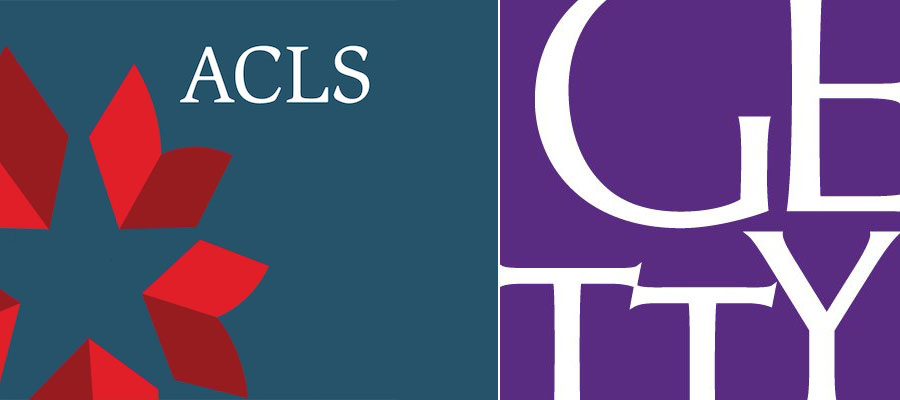American Council of Learned Societies (ACLS) invites applications for Getty/ACLS Postdoctoral Fellowships in the History of Art, made possible by the generous support of the Getty Foundation. These fellowships are intended to support an academic year of research and/or writing by early career scholars from around the world for a project that will make a substantial and original contribution to the understanding of art and its history. The ultimate goal of the project should be a major piece of scholarly work by the applicant. ACLS does not fund creative work (e.g., novels or films), textbooks, straightforward translation, or pedagogical projects.
ACLS will award 10 fellowships, each with a stipend, plus funds for research and travel during the award period. The fellowships are portable: a fellow may elect to take up the award at any appropriate site for the work proposed, anywhere in the world.
Awards also include a special multi-day residency at the Getty Research Institute in Los Angeles following the fellowship period. The residency offers Getty/ACLS fellows a structured, personalized orientation to the Getty’s rich holdings and provides a forum for them to network and present their research to each other and to Getty curators and staff.
Getty/ACLS Postdoctoral Fellowships may not be held concurrently with other significant fellowships and grants. Tenure of the award must encompass the entirety of the 2023-24 academic year, during which fellows must devote themselves to full-time research and writing. The residency for 2023-24 Getty/ACLS Fellows will be held for three days in July 2024 (exact dates TBA).
Eligibility
- Applicants must have a PhD that was conferred between September 1, 2017 and December 31, 2021.
- Applicants who earned their PhDs in any humanistic field may apply, so long as they demonstrate that their research draws substantially on the materials, methods, and/or findings of art history, and contributes to the field. Scholars may propose new approaches to art historical scholarship and/or explore connections between art history and other humanistic disciplines.
- This program welcomes proposals from applicants from anywhere in the world, without restriction as to citizenship, country of residency, location of work proposed, or employment.
